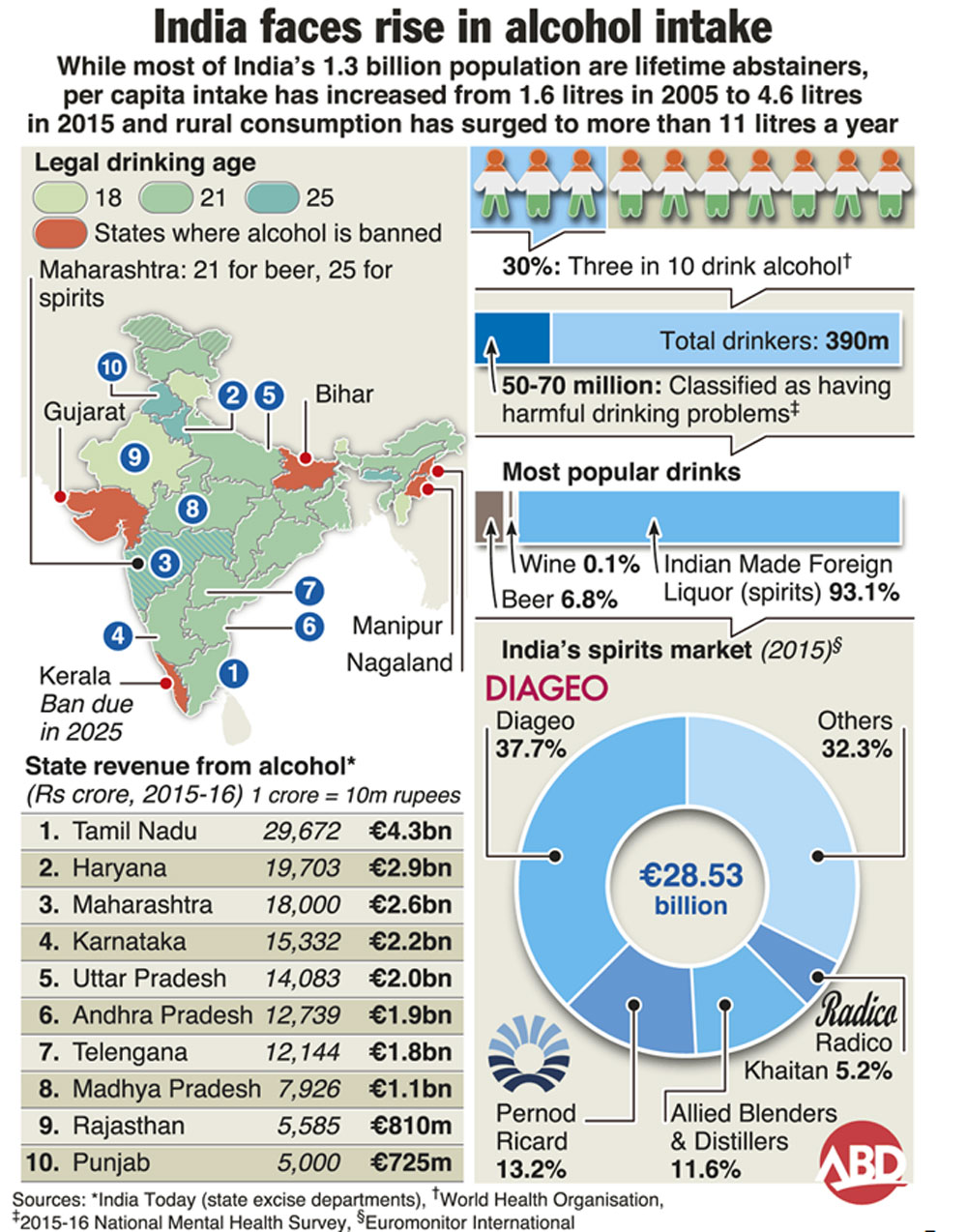Kingfisher beer is losing market share
Brewers have long struggled to lure tipplers away from domestic rum and whisky. Despite the proliferation of bars and microbreweries across urban India, the country still has one of the world’s lowest per capita rates of beer consumption at just 4.6 litres. Heineken, AB-InBev and Carlsberg together control about 90 percent of the 26 million hl beer market.
The country’s largest brewer, United Breweries (UB), in which Heineken has a 43 percent stake, and AB-InBev have already launched their global brands to boost consumption and hike profits. Competition is rife as consumers are spoilt for choice. As many as 52 new beer brands and their variants were introduced in 2017, more than twice as many as in 2016.
However, the move to premiumise the market has not proved beneficial for all. According to market research firm Euromonitor, the onslaught of these brands has reduced UB’s sway over the market.
UB’s overall market share, through its seven major brands among the country’s top 23 beer brands, was 44.1 percent in 2016, down from 50.1 percent in 2011. Nevertheless, the company remains the largest in India, thanks to its domestic Kingfisher brand. Carlsberg’s total share was 16.9 percent and AB-InBev’s 24.6 percent by volume.
The good news for Heineken is that a government agency is planning to sell a chunk of UB shares which it confiscated from the country’s most notorious defaulter VJ Mallya under the Prevention of Money Laundering Act, local media reported on 18 January 2018.
Allegedly the confiscated loot represents a 15.2 percent stake in UB. Mr Mallya was India’s beer and booze baron before he escaped to the UK in 2016.

